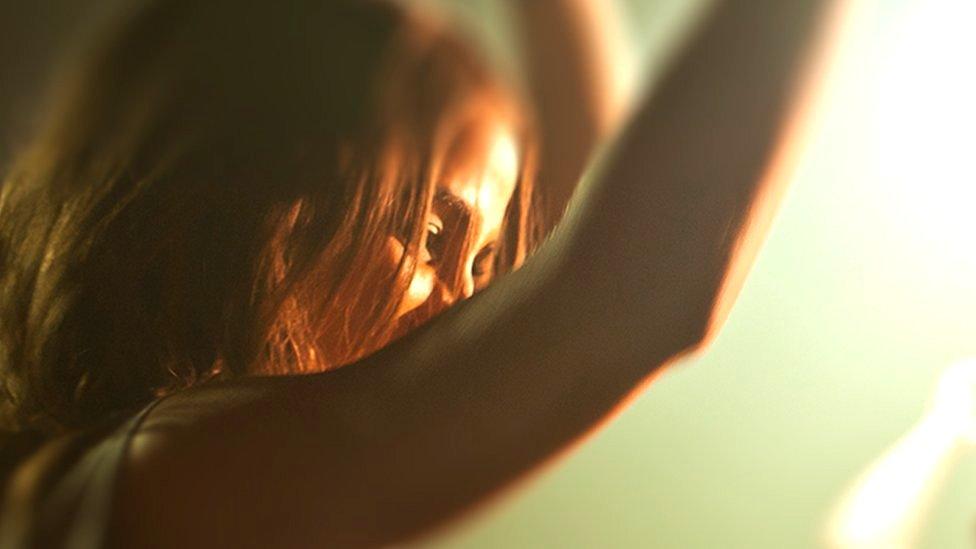Spiking: 'You definitely think twice about socialising now'
- Published
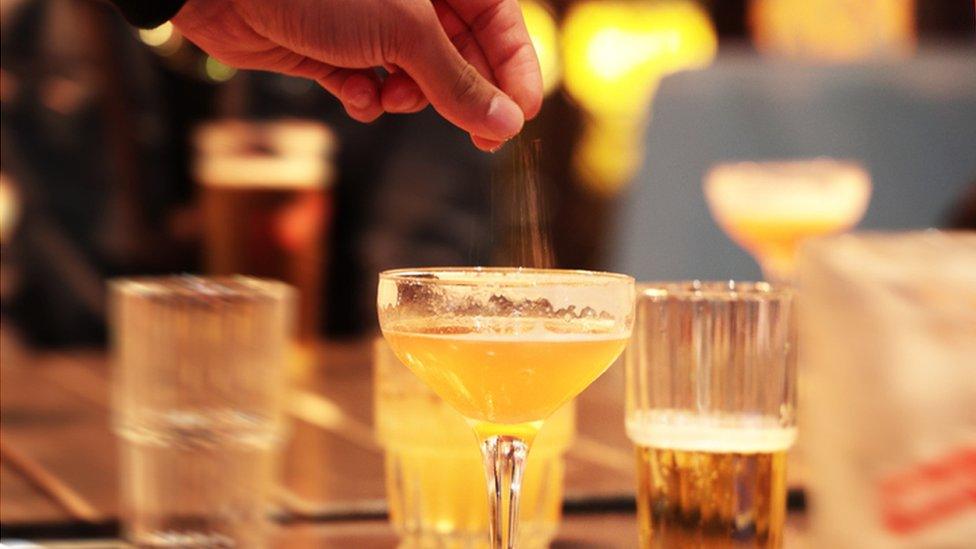
Cases of drink-spiking, and needle-spiking, have been reported across the UK
Reports of clubbers being spiked on a night out - either by injection, or through drinks - are hitting the headlines. How are young people feeling about the issue?
A spate of incidents of spiking has caused concern and anger in recent weeks, with women across the UK boycotting nightclubs for so-called "Girls' Nights In" to highlight the issue of spiking - and there have been a number of arrests by police investigating the phenomenon.
How is it changing the behaviour of people in the bars and clubs of Norwich?

'When I am out, I cling to my friends'
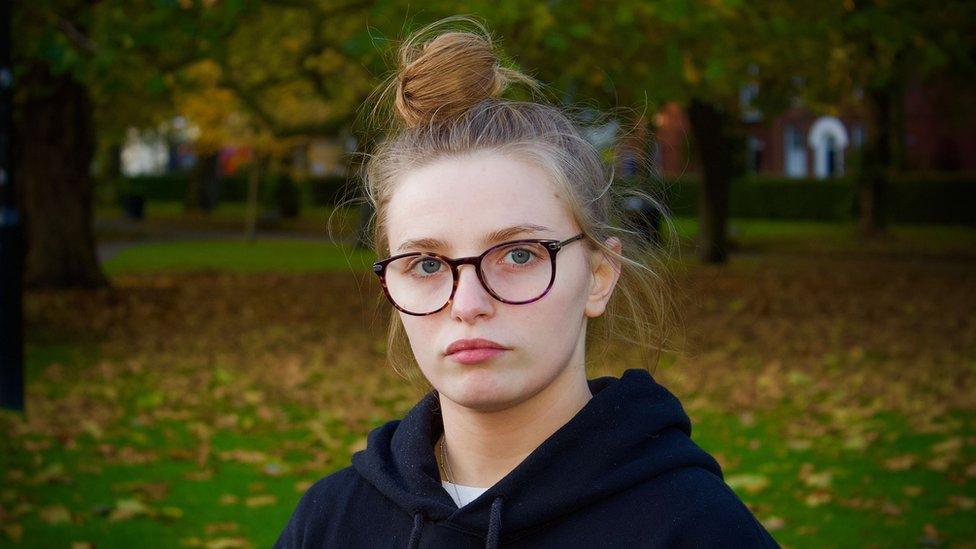
Elle Farthing, 20, says she is now on "high alert" when out with friends
Elle Farthing, 20, was out in Norwich with her boyfriend and friends when she vomited after just two drinks.
"The only thing I remember after that was, hours later, being at home," she says, adding that she "couldn't really walk or see" the next day.
Miss Farthing, a third-year University of East Anglia law student, says she woke up with a "suspicious, perfectly round" bruise on her upper arm after the Thursday night out several weeks ago.
"That leads me to believe it was injection, because I am so careful with my drinks," she says.
"My family said it might have been a really bad hangover, but it was like nothing I had experienced before.
"I felt really poorly, really tired; I couldn't really walk, I couldn't really see."
She will continue to have regular blood tests for HIV and hepatitis and is dealing with the psychological impact.
"I feel anxious; it took me a month or so to go out, and I've even been nervous about having friends round to my house, because you don't know who to trust," she adds.
"When I am out, I cling to my friends and don't let them out of my sight, and never put my drink down.
"I'm on high alert - all the precautions I used to take - but in extra measure.
"It's not hugely safe for women anyway, and it's definitely a deterrent, which isn't ideal now that things have opened, and being at uni, you want to have a social life.
"You definitely think twice about socialising now."

'They're not getting my money'
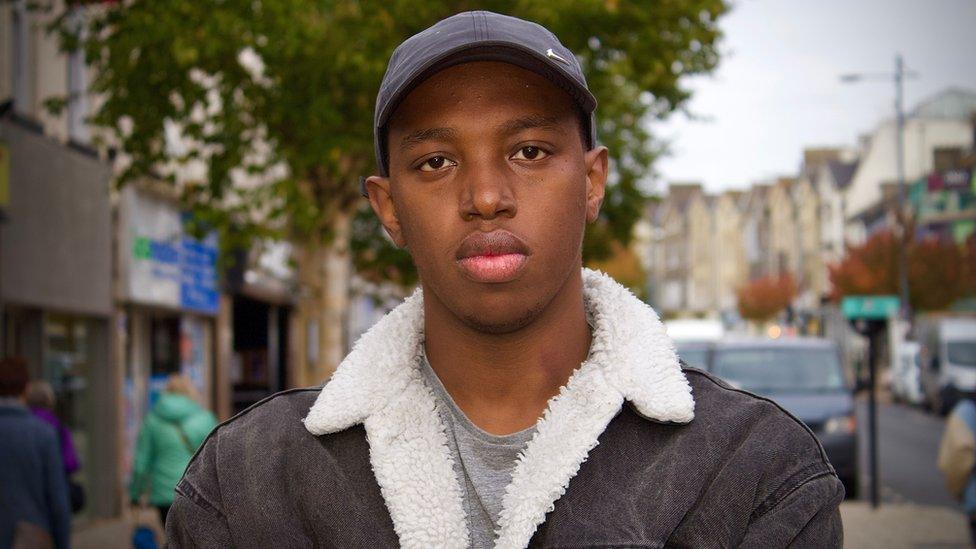
UEA student Taf Golding says boycotting clubs could help improve safety measures
Miss Farthing says she is not sure searching people before entry to bars and clubs will solve the issue - a sentiment shared by fellow UEA student Taf Golding, 21.
He believes it is "way more important" for people to boycott clubs and vote with their feet, rather than relying on clubs to increase their searches before entry.
"OK, more searches - that might scare a couple of people off, but half the time these syringes are made of plastic, it's easy to slip them by and get into the club," he says.
"If people are refusing to go to these clubs on a regular basis, the clubs are losing money and will have to find more measures to get people through the doors.
"Until they solve they solve this problem, they are not getting my money."

'We need a legislative and cultural change'
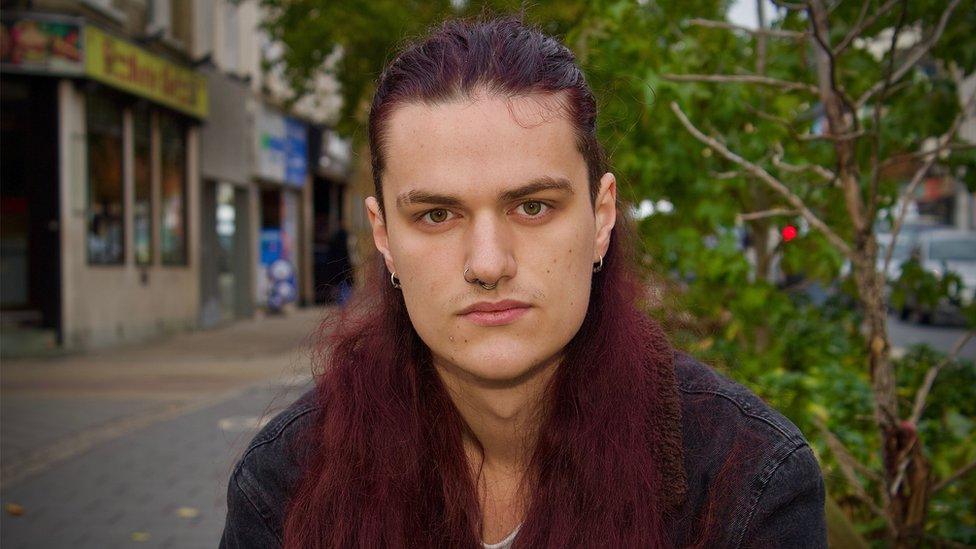
Kian Garvey says a "legislative and cultural change" is needed before he will consider clubs a safe environment
Friend Kian Garvey says clubs do not feel a "safe space" generally, which put him off going to them well before the recent incidents of spiking by needle.
"[Spiking] is a by-product of wider sexual violence and violent crime, and clubs are the perfect place for that," he says.
"What we need is a legislative and cultural change and we need to do that through not spending our money there."

'We are taking these reports seriously'
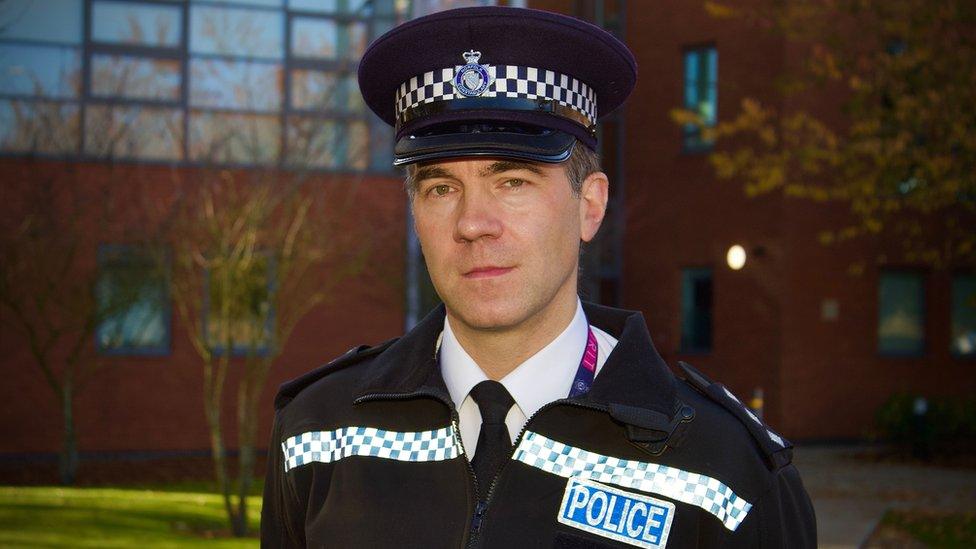
Ch Insp Ed Brown says increased awareness is leading to increased reports of spiking
Norfolk Police says there have been 45 reported spiking-related incidents by drink and by needle, since 1 October.
The vast majority were in Norwich but there have also been reports in King's Lynn, Dereham and Great Yarmouth.
It says more than 20 officers will patrol key areas of Norwich on Friday and Saturday night.
"With increased awareness of this type of incident in recent weeks, we are still seeing an increase in reports of spiking," says Ch Insp Ed Brown.
"Such offences are serious crimes and we are taking these reports seriously."
He says any suspected spiking should be reported to bar staff and police immediately, with the person not left alone.

Find BBC News: East of England on Facebook, external, Instagram, external and Twitter, external. If you have a story suggestion email eastofenglandnews@bbc.co.uk
Related topics
- Published8 November 2021

- Published5 November 2021

- Published4 November 2021
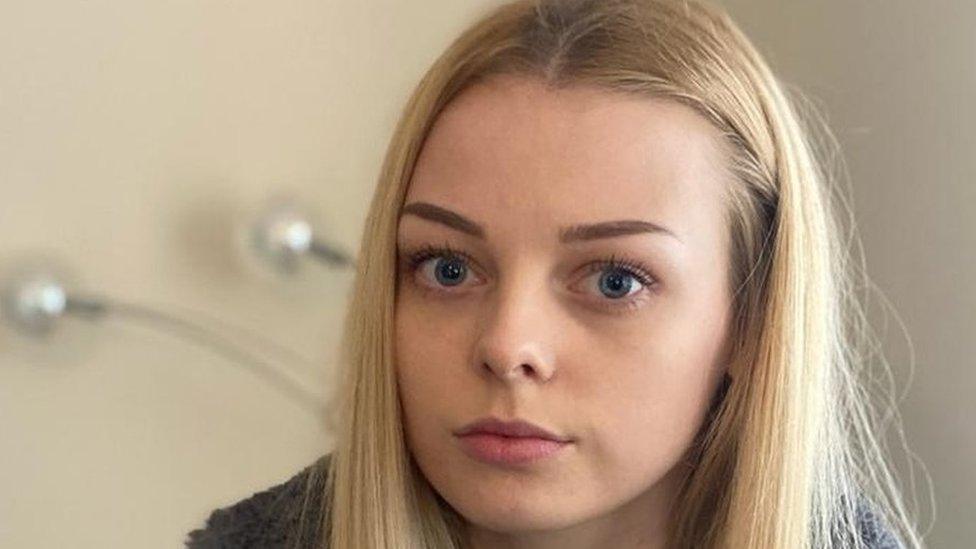
- Published22 October 2021
